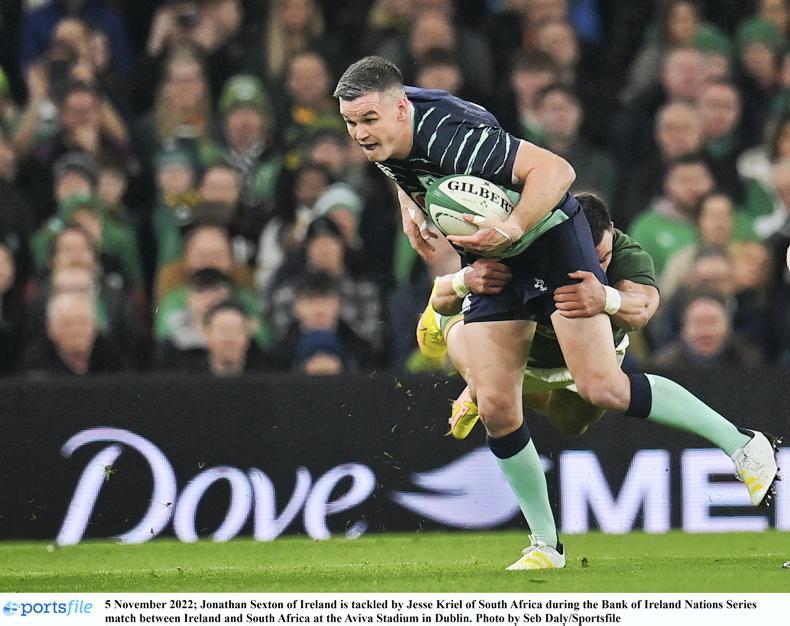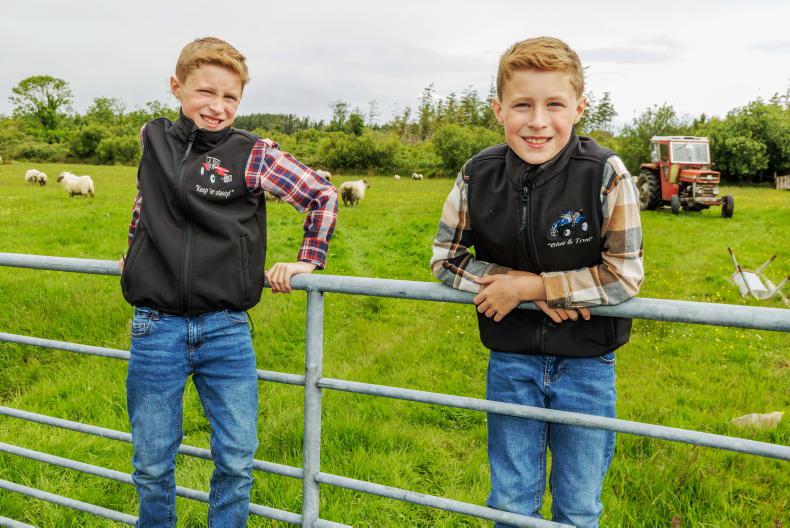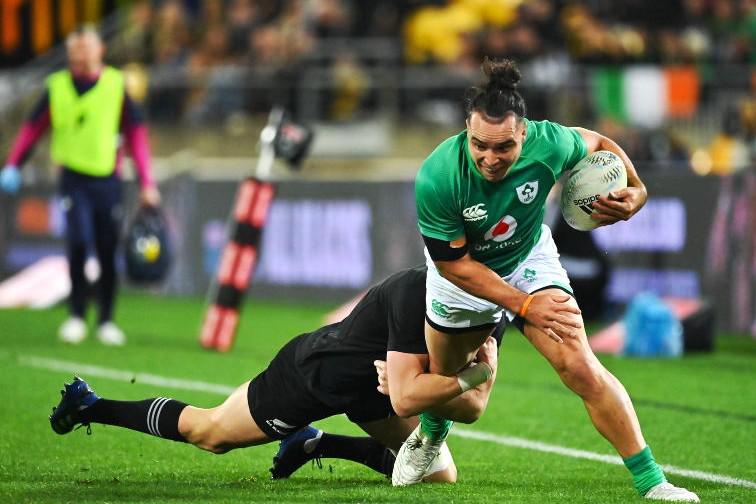In the final round of the 2022 Six Nations competiton, a late try from Italy’s Edoardo Padovani, set up by Ange Capuozzo’s darting run and converted by Paolo Garbisi, gave them a dramatic 22-21 win over Wales at the Principality Stadium. It meant they avoided a seventh straight winless campaign.
While they didn’t play any summer Tests, they beat Australia (admittedly not a first-choice Wallabies selection) in November, and, while nobody is suggesting that they may be dark horses for the World Cup later this year, there is a bit more optimism there than in previous years. Added to this is the fact that Italy won three of their five games in last year’s U20s Six Nations.
It’s a nice change from the annual question as to whether or not Italy should even be allowed to remain in the Six Nations. That many of those casting doubt are from Ireland shows how short memories can be.
Some of those reading this may not be aware that the Six Nations was once the Five Nations – Italy first competed in 2000. And, prior to that, Ireland was the Italy of the Five Nations.

Paddy Johns of Ireland contests a lineout ball during the 1998 Five Nations Rugby Championship match between England and Ireland at Twickenham Stadium in London, England. \ Matt Browne/Sportsfile
In fact, wins for Italy against Ireland in 1995 and 1997 (twice) were key factors in them being admitted into the competition. For Ireland, they were just yet more defeats in a decade that saw eight wins in 40 Five Nations games, with complete whitewashes in 1992 and 1998.
For those of us who still remember those days, the idea of Ireland being top of the world rankings and favourites to win the championship before facing into a World Cup with high hopes still seems fanciful.
Certainly, it makes us stop short of the concerns in November that, while Ireland were beating South Africa and Australia, they weren’t beating them with enough swagger.
More, more, more
It’s the nature of fandom to always want more, rather than being grateful that things might be better than they had been. Until you make it to the very top of the sport and are regarded as invincible, there’s always room for improvement and Ireland is finding that better results lead to higher expectations and all of the pros and cons that go with them.
It’s the sporting equivalent of Oscar Wilde’s line about the only thing in life worse than being talked about is not being talked about. While we’re loathe to take anything for granted, Italy’s visit to Aviva Stadium this weekend should be a straightforward home win with a try-scoring bonus point.

Ciaran Scally is tackled by Orazio Arancio and Javier Roselli of Italy during the 1999 Rugby International match between Ireland and Italy at Lansdowne Road in Dublin. \ Matt Browne/Sportsfile
These games are never likely to be hugely entertaining for those watching – if they are, you’re probably performing below expectations – but showing that you can focus properly for such challenges is part of establishing yourself as a truly top team.
A World Cup year is different, in that it requires a team to try to peak twice. With England and Wales both trying to bed in new management teams, Ireland’s relative stability should be an advantage, both now and later on in the season.
No player indefinite
Of course, a strong World Cup campaign will need a strong squad and the greatest question mark remains at out-half. Captain Jonathan Sexton remains the clear first-choice at number 10, the team’s quarterback and playmaker, but behind him there is a race that is constantly changing.
Joey Carbery was in pole position to be back-up, but he has been usurped by fellow Munster player Jack Crowley and Leinster’s Ross Byrne. The speed at which the situation changes was shown in November, when Byrne went from not being in the squad at all – another Leinster man, Ciarán Frawley, was ahead of him – to coming on to kick the winning penalty against Australia.
It’s likely to change again between now and September, when the World Cup begins. By this stage, we’re used to offering up prayers whenever Sexton goes down injured and, despite his best efforts, the skipper won’t be able to continue indefinitely.
When that day comes, the player who steps into his boots will have quite the task – without being too dramatic, it may well be the case that the changeover leads to a period of transition for Ireland. We may not descend back to the dark days of the 1990s, but we should certainly enjoy these good times while they are happening, because we don’t know how long they will last for.
Read more
Thousands turn out for Galway v Mayo
Rowntree makes the right calls
In the final round of the 2022 Six Nations competiton, a late try from Italy’s Edoardo Padovani, set up by Ange Capuozzo’s darting run and converted by Paolo Garbisi, gave them a dramatic 22-21 win over Wales at the Principality Stadium. It meant they avoided a seventh straight winless campaign.
While they didn’t play any summer Tests, they beat Australia (admittedly not a first-choice Wallabies selection) in November, and, while nobody is suggesting that they may be dark horses for the World Cup later this year, there is a bit more optimism there than in previous years. Added to this is the fact that Italy won three of their five games in last year’s U20s Six Nations.
It’s a nice change from the annual question as to whether or not Italy should even be allowed to remain in the Six Nations. That many of those casting doubt are from Ireland shows how short memories can be.
Some of those reading this may not be aware that the Six Nations was once the Five Nations – Italy first competed in 2000. And, prior to that, Ireland was the Italy of the Five Nations.

Paddy Johns of Ireland contests a lineout ball during the 1998 Five Nations Rugby Championship match between England and Ireland at Twickenham Stadium in London, England. \ Matt Browne/Sportsfile
In fact, wins for Italy against Ireland in 1995 and 1997 (twice) were key factors in them being admitted into the competition. For Ireland, they were just yet more defeats in a decade that saw eight wins in 40 Five Nations games, with complete whitewashes in 1992 and 1998.
For those of us who still remember those days, the idea of Ireland being top of the world rankings and favourites to win the championship before facing into a World Cup with high hopes still seems fanciful.
Certainly, it makes us stop short of the concerns in November that, while Ireland were beating South Africa and Australia, they weren’t beating them with enough swagger.
More, more, more
It’s the nature of fandom to always want more, rather than being grateful that things might be better than they had been. Until you make it to the very top of the sport and are regarded as invincible, there’s always room for improvement and Ireland is finding that better results lead to higher expectations and all of the pros and cons that go with them.
It’s the sporting equivalent of Oscar Wilde’s line about the only thing in life worse than being talked about is not being talked about. While we’re loathe to take anything for granted, Italy’s visit to Aviva Stadium this weekend should be a straightforward home win with a try-scoring bonus point.

Ciaran Scally is tackled by Orazio Arancio and Javier Roselli of Italy during the 1999 Rugby International match between Ireland and Italy at Lansdowne Road in Dublin. \ Matt Browne/Sportsfile
These games are never likely to be hugely entertaining for those watching – if they are, you’re probably performing below expectations – but showing that you can focus properly for such challenges is part of establishing yourself as a truly top team.
A World Cup year is different, in that it requires a team to try to peak twice. With England and Wales both trying to bed in new management teams, Ireland’s relative stability should be an advantage, both now and later on in the season.
No player indefinite
Of course, a strong World Cup campaign will need a strong squad and the greatest question mark remains at out-half. Captain Jonathan Sexton remains the clear first-choice at number 10, the team’s quarterback and playmaker, but behind him there is a race that is constantly changing.
Joey Carbery was in pole position to be back-up, but he has been usurped by fellow Munster player Jack Crowley and Leinster’s Ross Byrne. The speed at which the situation changes was shown in November, when Byrne went from not being in the squad at all – another Leinster man, Ciarán Frawley, was ahead of him – to coming on to kick the winning penalty against Australia.
It’s likely to change again between now and September, when the World Cup begins. By this stage, we’re used to offering up prayers whenever Sexton goes down injured and, despite his best efforts, the skipper won’t be able to continue indefinitely.
When that day comes, the player who steps into his boots will have quite the task – without being too dramatic, it may well be the case that the changeover leads to a period of transition for Ireland. We may not descend back to the dark days of the 1990s, but we should certainly enjoy these good times while they are happening, because we don’t know how long they will last for.
Read more
Thousands turn out for Galway v Mayo
Rowntree makes the right calls











SHARING OPTIONS